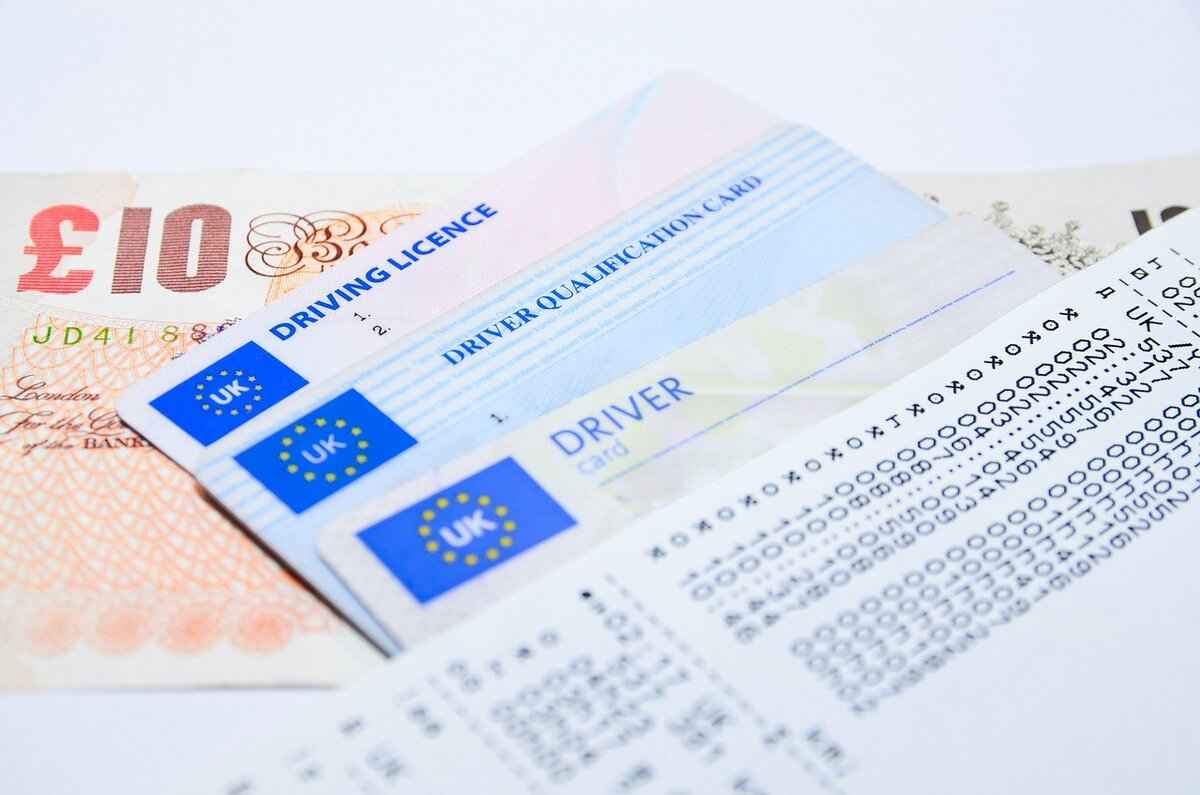This article delves into the legality of driving barefoot in Florida, addressing common misconceptions and providing insights into state laws regarding footwear while operating a vehicle. Many drivers wonder if it’s permissible to drive without shoes, and whether doing so poses any legal or safety concerns.
What Does Florida Law Say About Driving Barefoot?
According to Florida law, there is no explicit prohibition against driving barefoot. However, the law mandates that drivers maintain safe driving practices. This means that while you can legally drive without shoes, it is crucial to consider how your footwear—or lack thereof—affects your ability to drive safely.
Are There Any Safety Concerns with Driving Barefoot?
Driving barefoot can introduce several safety risks that every driver should be aware of:
- Impact on Vehicle Control: Barefoot driving can significantly affect a driver’s control over the vehicle. The absence of traction and support from shoes may lead to slower reaction times, especially in emergency situations.
- Pedal Sensitivity: Without shoes, drivers may find it challenging to gauge pedal pressure accurately. This lack of feedback can lead to unintended acceleration or braking, increasing the risk of accidents.
- Foot Injuries: The risk of foot injuries is heightened when driving without shoes, particularly in the event of sudden stops or emergencies. It’s essential to prioritize personal safety while on the road.
Legal Implications of Driving Barefoot
While there are no specific laws against driving barefoot in Florida, engaging in careless driving can lead to legal repercussions. If barefoot driving results in unsafe behavior, drivers can face penalties, including fines or points on their driving record. Understanding these implications is crucial for all drivers.
What Are Common Misconceptions About Driving Barefoot?
Many believe that driving barefoot is illegal or inherently unsafe. Let’s clarify these misconceptions:
- Is It a Traffic Violation? Driving barefoot is not categorized as a traffic violation in Florida. However, if it leads to unsafe driving practices, it may result in penalties.
- Do Insurance Policies Cover Barefoot Driving? Most insurance policies do not specifically mention footwear while driving. Nonetheless, unsafe driving practices—regardless of whether you are barefoot—can impact coverage in the event of an accident.
What Do Experts Say About Driving Without Shoes?
Experts in driving safety provide valuable insights into the pros and cons of driving barefoot:
- Recommendations from Driving Instructors: Many driving instructors advise against barefoot driving due to safety concerns. They stress the importance of wearing appropriate footwear to ensure optimal vehicle control.
- Research on Driving Safety: Studies have shown that wearing suitable footwear can enhance reaction times and improve vehicle control, making it a safer option than driving barefoot.
What Should You Consider When Driving Barefoot?
If you decide to drive barefoot, consider the following factors to ensure safety and compliance with driving regulations:
- Road Conditions: Different road conditions can significantly impact driving safety. Barefoot drivers should assess the environment and adjust their driving style accordingly.
- Personal Comfort and Control: Comfort and control are paramount while driving. Evaluate whether driving barefoot enhances or hinders your ability to operate the vehicle safely.
In summary, while driving barefoot is not illegal in Florida, it comes with potential risks that drivers should carefully consider. The choice of footwear can significantly impact driving safety and vehicle control, making it an important factor for all motorists to keep in mind.

What Does Florida Law Say About Driving Barefoot?
Driving barefoot in Florida raises several questions among motorists. Many people wonder whether it is legal and what implications it may have on safety and legal responsibility. Understanding these aspects is crucial for anyone who operates a vehicle in the Sunshine State.
Florida law does not explicitly prohibit driving barefoot. This means that, technically, you can operate a vehicle without shoes. However, the law emphasizes the importance of safe driving practices, which can indeed be influenced by your choice of footwear. In the absence of specific regulations against driving barefoot, the focus shifts to the broader principles of road safety and responsible driving behavior.
While it is legal to drive without shoes, there are significant safety concerns that drivers should consider. Understanding these risks can aid in making informed decisions while on the road.
Driving barefoot can diminish a driver’s ability to control the vehicle effectively. The lack of traction provided by shoes may lead to slower reaction times and reduced stability, particularly in emergency situations. This can affect your overall driving performance and increase the risk of accidents.
Without the cushioning and grip of shoes, drivers may find it challenging to gauge pedal pressure accurately. This lack of feedback can lead to over- or under-pressing the accelerator or brake, potentially resulting in dangerous situations. Proper footwear can enhance pedal sensitivity and improve control over the vehicle.
Driving barefoot also increases the risk of foot injuries. In the event of sudden stops or emergencies, your bare feet are more vulnerable to injury. Considering personal safety while driving barefoot is essential, as it can prevent unnecessary harm.
Although there are no specific laws against driving barefoot in Florida, careless driving can lead to legal consequences. If driving barefoot results in unsafe driving behavior, it could potentially lead to traffic citations or insurance complications. It is vital for drivers to remain aware of their surroundings and act responsibly.
Many people mistakenly believe that driving barefoot is illegal or inherently unsafe. This section aims to clarify these misconceptions and provide factual information.
Driving barefoot is not classified as a traffic violation in Florida. However, if it leads to unsafe driving practices, it could result in penalties or fines. It is essential to drive with caution, regardless of footwear.
Most insurance policies do not specifically address the act of driving barefoot. Nonetheless, unsafe driving practices, regardless of footwear, can affect coverage. If an accident occurs while driving barefoot, insurance companies may evaluate the circumstances surrounding the incident.
Experts in driving safety often provide valuable insights into the pros and cons of driving barefoot. Understanding their recommendations can help drivers make informed choices.
Many driving instructors advise against driving barefoot due to the associated safety concerns. They emphasize the importance of wearing appropriate footwear for optimal control and safety while operating a vehicle.
Studies indicate that wearing suitable footwear can enhance reaction times and vehicle control. This suggests that driving with shoes is generally safer than driving barefoot, as it allows for better feedback and grip on the pedals.
If you choose to drive barefoot, consider the following factors to ensure your safety and compliance with driving regulations:
- Assess the road conditions before driving barefoot.
- Wet or uneven surfaces may increase the risk of losing control.
Evaluate whether driving barefoot enhances or hinders your ability to operate the vehicle safely. Comfort and control are essential for safe driving, and your footwear choice can significantly impact these factors.

Are There Any Safety Concerns with Driving Barefoot?
Driving is a significant part of daily life for many individuals, and the choice of footwear can impact overall safety and control. One common question arises: While some drivers may prefer the feeling of driving without shoes, it is essential to understand the potential risks involved.
Driving barefoot can significantly affect vehicle control. The absence of shoes may lead to a lack of traction on the pedals, which can result in slower reaction times. Without the added grip that shoes provide, drivers might find it challenging to maintain a firm connection with the pedals, especially during sudden stops or sharp turns.
Another critical concern is pedal sensitivity. Barefoot drivers may struggle to gauge the pressure applied to the accelerator, brake, and clutch pedals accurately. This can lead to unintended acceleration or braking, increasing the likelihood of accidents. Proper footwear enhances pedal sensitivity, allowing for more precise control over the vehicle.
Driving without shoes also raises the risk of foot injuries. In the event of an emergency stop or collision, bare feet are more vulnerable to injury from the vehicle’s interior or the road. Additionally, hot surfaces can cause burns, while sharp objects can lead to cuts and abrasions. It’s crucial for drivers to consider their personal safety when choosing to drive barefoot.
While Florida law does not explicitly prohibit driving barefoot, it emphasizes safe driving practices. If a driver’s barefoot driving leads to careless or reckless behavior, they could face legal consequences. Understanding these implications is vital to avoid potential penalties and ensure safe driving.
Many people believe that driving barefoot is illegal or inherently unsafe. However, this is a misconception. While it is not classified as a traffic violation in Florida, it is essential to recognize that unsafe driving practices—regardless of footwear—can result in penalties.
Driving instructors and safety experts generally advise against driving barefoot. They emphasize that proper footwear is crucial for optimal control and safety. Research indicates that wearing appropriate shoes can enhance reaction times and vehicle control, making it safer than driving without them.
- Road Conditions: Different road surfaces can affect driving safety. Barefoot drivers should assess the environment and adjust their driving style accordingly.
- Personal Comfort: Comfort and control are essential while driving. Consider whether driving barefoot enhances or hinders your ability to operate the vehicle safely.
- Weather Conditions: Wet or slippery conditions can further complicate barefoot driving, increasing the risk of losing control.
In summary, while driving barefoot is not illegal in Florida, it does come with specific safety concerns that every driver should consider. The lack of traction, potential for foot injuries, and the impact on vehicle control are significant factors that can compromise driving safety. Drivers are encouraged to weigh these risks carefully and consider wearing appropriate footwear to enhance their safety on the road.
Impact on Vehicle Control
When it comes to driving, vehicle control is paramount for ensuring safety on the road. One often overlooked factor in achieving optimal control is the choice of footwear, or the lack thereof. Driving barefoot may seem like a comfortable and liberating option; however, it can significantly impact a driver’s ability to manage their vehicle effectively.
Without the traction and support that shoes provide, drivers may experience a decrease in their ability to respond quickly to changing road conditions. The soles of the feet are not designed for gripping pedals, which can lead to slippery situations and reduced control over acceleration and braking. This lack of traction can cause a delay in reaction times, as drivers may struggle to apply the necessary pressure on the pedals.
Moreover, the absence of shoes can hinder a driver’s ability to gauge pedal sensitivity. Shoes are designed to provide feedback through the foot, helping drivers understand how much pressure they are applying to the pedals. Without this feedback, drivers may inadvertently press too hard or too soft, leading to potential accidents. For instance, a driver might accelerate too quickly when merging into traffic or fail to brake adequately in an emergency situation.
Additionally, driving barefoot increases the risk of foot injuries. In the event of sudden stops or collisions, bare feet are more susceptible to injury from the vehicle’s interior or from the pedals themselves. A driver could easily injure their foot on the brake pedal or sustain a serious injury during an accident, which could have been mitigated by wearing appropriate footwear.
It is important to note that while driving barefoot is not illegal in Florida, it does not absolve a driver from the responsibility of maintaining safe driving practices. If a driver is involved in an accident and it is determined that driving barefoot contributed to the incident, they may face legal repercussions. This includes potential charges for careless driving or negligence, which could impact insurance claims and lead to penalties.
In conclusion, while some may argue that driving barefoot offers a sense of freedom, the risks associated with it cannot be overlooked. The impact on vehicle control, including diminished traction, reduced pedal sensitivity, and increased risk of foot injuries, makes it a less safe choice. Drivers should carefully consider their footwear, as it plays a crucial role in ensuring their safety and the safety of others on the road.
Pedal Sensitivity
is a crucial aspect of driving that can significantly impact a driver’s ability to control their vehicle. When drivers operate a vehicle without shoes, they may encounter challenges in accurately gauging pedal pressure. This lack of proper footwear can lead to a range of issues that may compromise safety on the road.
Without the protective barrier of shoes, drivers often struggle to achieve the appropriate level of pressure on the accelerator and brake pedals. This can result in over- or under-acceleration, which may lead to dangerous situations. The sensation of the pedals can feel different when barefoot, making it harder to apply the right amount of force needed for various driving conditions. For instance, during sudden stops or quick accelerations, the lack of traction and feedback from shoes can delay a driver’s reaction time.
Moreover, the absence of shoes can hinder foot stability. When driving, it is essential for drivers to have stable footing to switch between pedals smoothly. Barefoot driving can lead to slipping, especially if the driver’s foot is sweaty or if the pedals are wet. This instability can increase the risk of accidents, as drivers may find it difficult to switch between the brake and accelerator quickly in emergency situations.
In addition to the challenges of pedal sensitivity, driving barefoot can expose drivers to potential injuries. In the event of a sudden stop or collision, unprotected feet are vulnerable to injury from the vehicle’s interior or from the road. The risk of foot injuries increases significantly when driving without shoes, particularly in high-pressure scenarios where quick reactions are necessary.
Experts recommend wearing proper footwear to enhance pedal control and overall driving safety. The right shoes can provide the necessary grip and feedback needed to ensure that drivers can respond quickly and accurately to changing road conditions. Comfortable, closed-toe shoes with a non-slip sole are ideal for driving, as they offer both protection and the ability to feel the pedals effectively.
In summary, while it may not be illegal to drive barefoot in Florida, the implications of doing so can affect a driver’s safety and control over their vehicle. Understanding the importance of and the role of appropriate footwear can help drivers make informed decisions that prioritize their safety and the safety of others on the road.
Ultimately, it’s essential for drivers to consider their footwear choices carefully. By prioritizing proper footwear, drivers can enhance their control over the vehicle, reduce the risk of accidents, and ensure a safer driving experience for everyone on the road.
Foot Injuries
Driving is a routine activity for many, but safety should always be a priority. One often overlooked aspect of driving safety is the choice of footwear. While many people enjoy the freedom of driving barefoot, it is essential to understand the potential risks associated with this practice.
When operating a vehicle, the condition of your feet can significantly impact your ability to respond to various driving situations. Driving without shoes can lead to a range of and safety hazards, especially during emergencies.
Driving without shoes increases the risk of foot injuries, particularly in the event of sudden stops or accidents. In such scenarios, your bare feet are vulnerable to:
- Impact Injuries: In a collision, your feet may be subjected to forceful impacts that can lead to fractures or bruises.
- Burns: The heat generated from the brake pedal can cause burns to unprotected feet, especially in stop-and-go traffic.
- Scrapes and Cuts: Bare feet are more susceptible to cuts from debris on the floor of the vehicle or from the pedals themselves.
Driving barefoot can impair your ability to control the vehicle effectively. The absence of shoes can result in:
- Reduced Traction: Shoes provide grip that helps in maintaining control over the pedals. Without this grip, drivers may find it challenging to apply the right amount of pressure.
- Delayed Reaction Times: The sensitivity of your feet can be compromised when driving barefoot, leading to slower responses in critical situations.
Without the protection and support of shoes, drivers may struggle to gauge pedal pressure accurately. This lack of feedback can lead to:
- Over-acceleration: Bare feet might not provide the necessary feedback to prevent pressing the accelerator too hard.
- Difficulty in Braking: The absence of shoes can make it harder to modulate brake pressure, increasing the risk of accidents.
While it is not illegal to drive barefoot in Florida, it is crucial to understand that if driving without shoes leads to unsafe practices, legal repercussions may follow. Careless driving, regardless of footwear, can lead to fines or penalties.
Driving instructors and safety experts often advise against driving barefoot. They emphasize that proper footwear enhances control and safety on the road. Research indicates that wearing appropriate shoes can improve reaction times and overall vehicle handling.
If you choose to drive barefoot, consider the following factors:
- Road Conditions: Be mindful of the environment and adjust your driving style accordingly. Wet or uneven surfaces may pose additional challenges.
- Personal Comfort: Assess whether driving barefoot enhances or hinders your ability to operate the vehicle safely. Comfort can directly affect your focus and control.
Ultimately, while driving barefoot may seem appealing, understanding the associated risks and making informed decisions about footwear is crucial for ensuring your safety and that of others on the road.
Legal Implications of Driving Barefoot
When it comes to driving barefoot in Florida, many drivers are often left wondering about the legal implications and safety concerns associated with this practice. While there are no specific laws that outright ban driving without shoes, it is crucial to understand the potential consequences that can arise from careless driving.
Florida law does not explicitly state that driving barefoot is illegal. However, it does emphasize the importance of maintaining safe driving practices. If a driver is involved in an accident while driving barefoot and is deemed to be driving carelessly, they could face legal repercussions. This includes fines or penalties for unsafe driving behavior.
Careless driving is defined as operating a vehicle in a manner that shows a lack of regard for the safety of others. This could include actions such as speeding, weaving between lanes, or failing to maintain control of the vehicle. If a driver’s lack of footwear contributes to any of these behaviors, they may be held accountable under Florida law.
- Reduced Traction: Without shoes, a driver may experience decreased traction on the pedals, which can lead to slower reaction times and difficulty in controlling the vehicle.
- Injury Risks: Driving barefoot increases the risk of foot injuries, especially in the event of sudden stops or emergencies, where a driver may need to react quickly.
- Pedal Sensitivity: Shoes provide a buffer that enhances pedal sensitivity. Without this, drivers might struggle to apply the right amount of pressure on the pedals, potentially leading to accidents.
While driving barefoot itself is not illegal, it is important to note that if a driver is involved in an accident while barefoot, insurance companies may scrutinize the circumstances. If it is determined that driving without shoes contributed to the accident, this could affect claims or coverage.
Many people mistakenly believe that driving barefoot is illegal. This misconception can lead to unnecessary anxiety among drivers. In reality, the focus should be on safe driving practices rather than footwear. Understanding the law and the potential risks associated with driving barefoot can help alleviate these concerns.
Driving instructors and safety experts often advise against driving barefoot. They emphasize that proper footwear can significantly enhance a driver’s control over the vehicle. Research has shown that wearing shoes while driving can improve reaction times and overall safety on the road.
- Road Conditions: Assessing the road conditions is essential. Wet or uneven surfaces may pose additional risks when driving without shoes.
- Personal Comfort: Consider whether driving barefoot makes you feel comfortable and in control. If it hinders your ability to operate the vehicle safely, it may be best to wear shoes.
- Legal Awareness: Stay informed about local laws and regulations that may pertain to driving practices. Being aware of the legal landscape can help you make safer choices.
In summary, while driving barefoot in Florida is not illegal, it is essential to understand the potential legal implications and safety concerns associated with this practice. Making informed decisions about footwear while driving can greatly enhance both personal safety and compliance with the law.

What Are Common Misconceptions About Driving Barefoot?
Driving barefoot is a topic that often sparks debate among motorists. Many individuals harbor the belief that it is illegal or unsafe to drive without shoes. However, these assumptions can lead to misunderstandings about the actual laws and safety practices associated with driving barefoot. This section aims to clarify these misconceptions and provide factual information regarding the practice of driving without footwear.
One of the most common misconceptions is that driving barefoot is against the law in Florida. In reality, there are no specific laws prohibiting this practice. The state emphasizes safe driving, which can be influenced by the choice of footwear. Therefore, while it is not illegal, drivers should consider the implications of driving without shoes.
Another prevalent belief is that driving barefoot significantly increases the risk of accidents. While there are some valid safety concerns, it is essential to understand the nuances involved:
- Impact on Vehicle Control: Driving without shoes may reduce the driver’s ability to control the vehicle effectively. The lack of traction can lead to slower reaction times, especially in emergency situations.
- Pedal Sensitivity: Barefoot drivers might find it challenging to gauge the pressure applied to the pedals accurately. This can result in unintended acceleration or braking, increasing the likelihood of an accident.
- Foot Injuries: In the event of a sudden stop or collision, driving barefoot can expose the feet to injuries. Proper footwear provides a layer of protection that is absent when driving without shoes.
While driving barefoot is not classified as a traffic violation, it can be deemed careless driving if it leads to unsafe conditions on the road. If a driver is involved in an accident while barefoot, insurance companies may scrutinize the circumstances, potentially affecting claims. Thus, it is crucial for drivers to be aware of how their footwear choices can impact their legal standing.
A common question that arises is whether insurance policies address the issue of driving barefoot. Generally, most insurance policies do not explicitly mention footwear. However, if a driver’s choice to drive barefoot contributes to an accident, it could influence the insurance coverage and claims process.
Driving instructors and safety experts often provide valuable insights into the practice of driving barefoot. Many instructors advise against it, citing the importance of proper footwear for optimal vehicle control and safety. Research consistently shows that wearing appropriate shoes can enhance reaction times and vehicle handling, making it a safer option than driving barefoot.
If you decide to drive barefoot, there are several factors to keep in mind to ensure your safety:
- Road Conditions: Different road surfaces and weather conditions can affect driving safety. Assessing these factors is crucial for barefoot drivers.
- Personal Comfort and Control: Evaluate whether driving barefoot enhances or hinders your ability to operate the vehicle safely. Comfort and control are vital for effective driving.
In conclusion, while driving barefoot is legal in Florida, it is important to weigh the associated safety concerns and legal implications. Understanding these aspects can help drivers make informed decisions about their footwear while on the road.
Is It a Traffic Violation?
When it comes to the question of whether driving barefoot is a traffic violation in Florida, many drivers are often surprised to learn that it is not classified as a traffic violation. This misconception can lead to confusion and concern among motorists who prefer the freedom of driving without shoes. However, understanding the nuances of this topic is essential for ensuring safe driving practices.
Florida law does not explicitly prohibit driving without footwear. The state emphasizes safe driving practices, which can be influenced by the type of footwear—or lack thereof—that a driver chooses. While the absence of shoes is not illegal, it is crucial to consider how it might affect driving performance.
Driving barefoot may introduce certain safety risks that every driver should consider. Understanding these concerns can help individuals make informed decisions about their footwear while operating a vehicle.
One of the primary concerns with driving barefoot is the impact on vehicle control. Without the traction and support provided by shoes, a driver may experience slower reaction times and reduced control over the vehicle. This can be particularly dangerous in emergency situations where quick reflexes are essential.
Another significant issue is pedal sensitivity. Barefoot drivers may find it challenging to gauge the pressure needed on the gas and brake pedals accurately. This lack of feedback can lead to over- or under-application of pressure, potentially resulting in accidents.
Driving without shoes also increases the risk of foot injuries. In the event of sudden stops or emergencies, bare feet are more vulnerable to injury. Therefore, it is crucial to weigh personal safety against the preference for driving barefoot.
While there are no specific laws against driving barefoot in Florida, it is important to note that careless driving can lead to legal consequences. If a driver’s barefoot status contributes to unsafe driving behaviors, they may face penalties. Understanding these implications is vital for all drivers to avoid potential legal troubles.
Many people mistakenly believe that driving barefoot is illegal or inherently unsafe. This section aims to clarify these misconceptions and provide factual information.
Most insurance policies do not specifically address the issue of driving barefoot. However, it is important to note that unsafe driving practices, regardless of footwear, can impact coverage. If an accident occurs while driving barefoot and is deemed the result of unsafe practices, insurance claims may be affected.
Experts in driving safety provide valuable insights into the pros and cons of driving barefoot. Their recommendations can help drivers make informed choices.
Many driving instructors advise against barefoot driving due to safety concerns. They emphasize the importance of wearing appropriate footwear for optimal control and safety while driving.
Studies have shown that wearing suitable footwear can enhance reaction times and vehicle control. This evidence suggests that driving with proper shoes is generally safer than driving barefoot.
If you choose to drive barefoot, there are several factors to consider to ensure your safety and compliance with driving regulations.
Different road conditions can significantly impact driving safety. Barefoot drivers should assess their environment and adjust their driving style accordingly to maintain control.
Ultimately, comfort and control are essential while driving. Consider whether driving barefoot enhances or hinders your ability to operate the vehicle safely. Making informed decisions about footwear can lead to a safer driving experience.
Do Insurance Policies Cover Barefoot Driving?
When it comes to driving, many people wonder about the legality and safety of driving barefoot. A common question arises: This article delves into the nuances of insurance coverage in relation to footwear while driving, providing clarity on a topic that is often misunderstood.
Most insurance policies do not specifically address footwear choices while driving. Instead, they focus on the overall driving behavior and the circumstances surrounding an accident. Therefore, the critical factor is not whether a driver is barefoot, but rather whether their driving is considered safe and responsible.
If a driver is involved in an accident while driving barefoot, the insurance company will investigate the circumstances surrounding the incident. They will assess whether the driver was operating the vehicle in a safe manner. If the investigation concludes that driving barefoot contributed to unsafe driving practices, there may be implications for coverage.
- Negligence: If driving barefoot is deemed negligent, it could affect the outcome of an insurance claim.
- Accident Liability: The driver may be held partially liable if it’s determined that their footwear choice contributed to the accident.
- Policy Terms: Review your insurance policy to understand any clauses that might relate to driving practices.
While the law does not prohibit driving barefoot, it is essential to consider the impact of footwear on driving safety. Experts suggest that wearing appropriate shoes can enhance control and reaction time, reducing the risk of accidents.
Driving instructors and safety experts often advise against driving without shoes. They emphasize that proper footwear can:
- Enhance traction on pedals, allowing for better control.
- Improve pedal sensitivity, helping drivers gauge their pressure accurately.
- Protect against foot injuries in the event of sudden stops or accidents.
While driving barefoot is not illegal in Florida, engaging in unsafe driving practices can lead to legal consequences. If a driver is cited for careless driving, their insurance may not cover damages, especially if it is determined that their footwear contributed to the unsafe behavior.
In summary, while most insurance policies do not explicitly mention footwear, the overarching principle is that safe driving practices are paramount. Drivers should be aware of how their footwear choices can impact their driving and, ultimately, their insurance coverage. Making informed decisions about footwear can help ensure safety on the road and protect against potential insurance issues.

What Do Experts Say About Driving Without Shoes?
When it comes to driving, safety is paramount. One topic that often sparks debate is the practice of driving barefoot. While some drivers swear by it, others caution against it. To help clarify this issue, we turn to experts in the field of driving safety who offer valuable insights into the pros and cons of driving without shoes, enabling drivers to make informed choices.
Experts emphasize that while driving barefoot is not illegal in many states, including Florida, it does come with certain considerations that can impact driving safety. Below are some key points highlighted by driving safety professionals.
- Enhanced Sensitivity: Many drivers report that going barefoot allows for better pedal sensitivity. This can lead to more precise control over the vehicle, especially in situations that require quick reflexes.
- Comfort: For some individuals, driving barefoot can be more comfortable, particularly during long trips. It can prevent discomfort caused by tight shoes or high heels.
- Better Grip: Bare feet can provide a natural grip on the pedals, which may enhance control in certain weather conditions.
- Reduced Protection: One of the most significant drawbacks is the lack of protection for the feet. In the event of an accident or sudden stop, bare feet are more susceptible to injury.
- Slippery Pedals: Depending on the vehicle and conditions, pedals can be slippery. Without the traction provided by shoes, drivers may find it challenging to maintain control.
- Legal Implications: While driving barefoot is not illegal, if it leads to unsafe driving, it can result in penalties. Drivers can be cited for careless driving if their footwear choice is deemed a contributing factor to an accident.
Driving instructors and safety experts generally recommend wearing appropriate footwear while driving. They argue that while barefoot driving can offer some benefits, the risks often outweigh them. Here are some recommendations:
- Choose the Right Shoes: If you prefer to drive with shoes, select options that offer good grip and support. Avoid flip-flops or high heels that can slip off or hinder foot movement.
- Assess Conditions: Before driving barefoot, consider the road conditions. If the weather is rainy or the roads are uneven, it may be safer to wear shoes.
- Practice Caution: Always prioritize safety. If you feel that driving barefoot hinders your ability to control the vehicle effectively, it’s best to wear shoes.
Recent studies on driving safety have shown that wearing appropriate footwear can enhance reaction times and overall vehicle control. Research indicates that drivers with proper shoes are less likely to experience delays in response during critical driving situations. This evidence supports the notion that while driving barefoot is a personal choice, it may not always be the safest option.
In summary, while experts acknowledge the potential benefits of driving barefoot, they also highlight significant safety concerns. It’s essential for drivers to weigh these factors carefully and consider their personal driving habits and preferences. By doing so, they can make informed decisions that prioritize both comfort and safety on the road.
Recommendations from Driving Instructors
When it comes to driving, safety is paramount, and driving instructors play a crucial role in educating drivers about best practices. One common recommendation is to avoid driving barefoot. This advice stems from several safety concerns that can significantly impact a driver’s ability to control their vehicle.
Driving instructors often emphasize the importance of proper footwear for optimal control while operating a vehicle. The reasons behind this guidance include:
- Traction Issues: Without shoes, a driver may experience reduced traction on the pedals. This can lead to slipping, especially in adverse weather conditions.
- Foot Support: Shoes provide necessary support that can help in maintaining proper foot positioning and control over the pedals.
- Reaction Times: Studies show that wearing shoes can enhance a driver’s reaction times, allowing for quicker responses in emergency situations.
Driving barefoot can hinder a driver’s ability to effectively control their vehicle. The lack of a solid grip can lead to:
- Slower Reactions: A barefoot driver may not react as swiftly to sudden changes in traffic or road conditions.
- Poor Pedal Sensitivity: Without the cushioning that shoes provide, it can be challenging to gauge the appropriate pressure needed for the accelerator and brake pedals.
Driving without shoes poses several risks that can lead to accidents:
- Foot Injuries: In the event of a sudden stop or collision, bare feet are more susceptible to injuries.
- Legal Consequences: While driving barefoot is not illegal, engaging in unsafe driving practices can result in penalties.
Experts in driving safety advocate for wearing appropriate footwear. Recommendations include:
- Closed-Toe Shoes: These offer better protection and grip compared to sandals or flip-flops.
- Non-Slip Soles: Footwear with non-slip soles can provide better traction while driving.
- Comfortable Fit: Shoes should fit well, allowing for easy movement and control over the pedals.
While most driving instructors advise against barefoot driving, some individuals may feel comfortable doing so. Here are a few considerations:
- Familiarity with Vehicle: Drivers who are highly familiar with their vehicle may feel more in control barefoot, but this is not universally applicable.
- Road Conditions: In certain conditions, such as driving on a sandy beach, some might prefer to drive barefoot; however, this is an exception rather than the rule.
In summary, while it is not illegal to drive barefoot in Florida, driving instructors strongly recommend against it due to safety concerns. Proper footwear enhances vehicle control, reaction times, and overall safety. Adhering to expert recommendations can help ensure a safer driving experience for everyone on the road.
Research on Driving Safety
Driving safety is a critical concern for everyone on the road. As such, understanding the implications of footwear while driving is essential. highlights the importance of wearing appropriate footwear for optimal vehicle control and reaction times.
Footwear plays a significant role in how effectively a driver can operate a vehicle. Studies suggest that wearing shoes can enhance reaction times and improve overall vehicle control. When drivers are properly shod, they can more accurately gauge pedal pressure, which is crucial for safe driving.
Driving barefoot is often perceived as a casual choice, but it carries certain risks that can compromise safety:
- Reduced Traction: Without shoes, the feet may slip off pedals, especially in emergency situations where quick reflexes are required.
- Injury Risk: Bare feet are more susceptible to injury from sudden stops or collisions. A shoe can provide a layer of protection against impact.
- Pedal Sensitivity: Drivers may struggle to feel the pedals accurately, which can lead to over- or under-application of pressure, increasing the likelihood of accidents.
Driving instructors and safety experts overwhelmingly recommend wearing proper footwear while driving. According to them, comfortable shoes not only provide better grip but also enhance a driver’s ability to respond swiftly to changing road conditions. Studies show that even lightweight shoes can significantly improve performance compared to driving barefoot.
Research indicates that wearing appropriate footwear can enhance a driver’s reaction times. When a driver wears shoes, they are better able to control the vehicle and respond to unexpected situations. The cushioning and support provided by shoes can help in:
- Improving foot placement on pedals
- Enhancing comfort during long drives
- Reducing fatigue, which can lead to better concentration
While driving barefoot is not illegal in Florida, it can lead to legal consequences if it results in careless driving. If a driver is involved in an accident and it is determined that driving barefoot contributed to the incident, they may face penalties. Therefore, it is crucial for drivers to consider the potential legal ramifications of their footwear choices.
When deciding whether to drive barefoot, drivers should consider various factors:
- Road Conditions: Wet or uneven surfaces can increase the risk of slipping without shoes.
- Personal Comfort: Assess if driving barefoot enhances or hinders your driving experience.
- Emergency Situations: Think about how quickly you can react in a crisis without the protection of shoes.
In summary, while driving barefoot is not illegal in Florida, it is essential to recognize the potential safety risks and legal implications. Wearing appropriate footwear can significantly enhance driving safety, improve reaction times, and ensure better vehicle control. By making informed choices about footwear, drivers can contribute to a safer driving environment for themselves and others on the road.

What Should You Consider When Driving Barefoot?
When it comes to driving, many people may wonder about the implications of driving barefoot. While it is not explicitly illegal in many states, including Florida, there are several crucial factors to consider for safety and compliance with driving regulations. Understanding these factors can help you make informed decisions.
Driving barefoot may seem like a comfortable option, but it carries potential risks that every driver should be aware of. Here are some key safety considerations:
- Pedal Control: Without the grip of shoes, you may find it challenging to maintain control over the pedals. This lack of traction can lead to slower reaction times, especially in emergency situations.
- Foot Injuries: In the event of sudden stops or accidents, your bare feet are more susceptible to injuries. The risk of injury increases, particularly if your foot slips off the pedal.
- Temperature Sensitivity: Bare feet can become too hot or too cold, affecting your ability to drive safely. Hot pavement can cause burns, while cold conditions can lead to numbness.
While it is legal to drive barefoot in Florida, it is essential to recognize that careless driving can lead to legal consequences. If driving barefoot contributes to an accident or unsafe driving behavior, you may face penalties. Here are some legal aspects to consider:
- Traffic Violations: If your barefoot driving leads to unsafe practices, it could be classified as a traffic violation.
- Insurance Implications: Most insurance policies do not specifically address footwear, but if your driving is deemed unsafe, it could impact your coverage.
Driving instructors and safety experts often have differing views on the practice of driving barefoot. Here are some insights from professionals:
- Recommendations: Many driving instructors advise against barefoot driving, highlighting the importance of proper footwear for optimal control and safety.
- Research Findings: Studies suggest that wearing appropriate footwear enhances reaction times and vehicle control, making it a safer option than driving barefoot.
When considering driving barefoot, it is vital to take into account the road conditions and your environment. Factors such as:
- Weather Conditions: Rain, snow, or ice can significantly affect traction. In such conditions, wearing shoes is highly recommended.
- Road Surface: The type of road surface can impact your driving experience. Uneven or rough surfaces may pose additional risks when driving barefoot.
Your personal comfort and ability to control the vehicle are paramount when deciding to drive barefoot. Consider the following:
- Comfort Level: Assess whether driving barefoot enhances your comfort. If you feel more at ease with shoes, it may be best to wear them.
- Control Over the Vehicle: Evaluate if going barefoot affects your ability to operate the vehicle safely. If you find it hinders your control, opt for appropriate footwear.
Ultimately, while driving barefoot is a personal choice, being aware of the associated risks and legal implications is essential. Making informed decisions can help ensure your safety and compliance with driving regulations.
Road Conditions
Driving is an essential part of daily life for many, but it comes with responsibilities, especially when it comes to safety. One crucial factor that can significantly affect driving safety is . Understanding how different environments impact your driving experience is vital, particularly for those who choose to drive barefoot.
The condition of the road can vary widely, from smooth highways to bumpy gravel paths. Each type of road presents unique challenges that drivers must navigate. When driving barefoot, the traction between your foot and the pedals can be compromised, leading to potential safety issues.
Before setting out, it’s essential for drivers to assess the road conditions. Factors such as weather, road surface, and traffic density play a significant role in determining how safely you can operate your vehicle. Here are some important considerations:
- Wet or Icy Roads: Wet surfaces can reduce traction, making it harder to maintain control. Icy conditions can be even more hazardous, requiring careful maneuvering.
- Uneven Surfaces: Gravel or poorly maintained roads can lead to unexpected bumps that may cause a barefoot driver to lose control.
- High Traffic Areas: In congested areas, quick reactions are crucial. Barefoot drivers might find it challenging to respond swiftly, affecting their ability to react to sudden stops.
When driving barefoot, it’s crucial to adjust your driving style based on the road conditions. Here are some tips to enhance your safety:
- Reduce Speed: Slowing down can provide you with more time to react to unexpected situations, especially on slippery or uneven roads.
- Increase Following Distance: Maintaining a greater distance from the vehicle ahead allows for more reaction time, which is essential when driving barefoot.
- Be Extra Cautious: Pay close attention to your surroundings. Look out for pedestrians, cyclists, and other vehicles, adjusting your speed and position as necessary.
While some drivers may find it comfortable to drive barefoot, comfort should not come at the expense of safety. Evaluate whether driving without shoes enhances your ability to control the vehicle. The lack of support from footwear can lead to fatigue and decreased sensitivity in your foot, which may hinder your ability to manage the pedals effectively.
In summary, while driving barefoot is not illegal in Florida, it is essential to consider how different road conditions can impact your driving safety. By assessing the environment and adjusting your driving style accordingly, you can help ensure a safer driving experience. Always prioritize safety and make informed decisions about your footwear while on the road.
Personal Comfort and Control
When it comes to driving, personal comfort and control are paramount. The way you feel behind the wheel can significantly impact your ability to operate your vehicle safely and effectively. One question that often arises is whether driving barefoot enhances or hinders this essential comfort and control.
Being comfortable while driving allows you to focus on the road and react promptly to any situation. Discomfort can lead to distractions, which may compromise your attention and driving performance. For many, wearing shoes provides a sense of security and support that enhances their driving experience. However, for others, driving barefoot can feel more natural and freeing.
The control you have over your vehicle is crucial for safe driving. When you drive barefoot, you may experience both advantages and disadvantages:
- Enhanced Sensitivity: Some drivers argue that being barefoot allows for better pedal sensitivity, as they can feel the pedals more directly.
- Lack of Traction: On the flip side, without the grip that shoes provide, your foot may slip off the pedals, especially during sudden maneuvers.
- Pressure Application: Accurately gauging how much pressure to apply to the pedals can be challenging without footwear, potentially leading to accidents.
While driving barefoot is not illegal in many states, including Florida, it does come with certain risks:
- Foot Injuries: In the event of an accident or sudden stop, your bare feet are more vulnerable to injury. Shoes can provide a layer of protection that is absent when driving barefoot.
- Environmental Factors: Depending on the weather and road conditions, driving barefoot may expose your feet to extreme temperatures or debris, which can be hazardous.
Driving instructors and safety experts often have mixed feelings about barefoot driving. Many recommend wearing appropriate footwear to enhance safety and control. Studies have shown that wearing shoes can improve reaction times and overall vehicle control, making it a safer choice for most drivers.
If you decide to drive barefoot, there are several important factors to consider:
- Road Conditions: Assess the road conditions before you drive. Wet or uneven surfaces can increase the risk of slipping off the pedals.
- Personal Preference: Ultimately, your comfort level matters. If you feel more in control and comfortable driving barefoot, evaluate the risks and make an informed decision.
In summary, while driving barefoot can offer a sense of freedom and comfort for some, it is essential to weigh the potential safety risks against the benefits. Understanding your own driving style, the conditions of the road, and the importance of vehicle control can help you make the best choice for your personal driving experience. Always prioritize safety and be aware of how your footwear choices impact your ability to drive effectively.
Frequently Asked Questions
- Is it illegal to drive barefoot in Florida?
No, it’s not illegal to drive barefoot in Florida. However, safe driving practices are essential, and your footwear can impact your control of the vehicle.
- Can driving barefoot affect my insurance coverage?
While most insurance policies don’t specifically mention footwear, unsafe driving practices can lead to claims being denied, regardless of whether you’re barefoot or not.
- What safety concerns should I consider when driving barefoot?
Driving barefoot can decrease your pedal sensitivity and control, increasing the risk of accidents. It’s crucial to assess how your footwear—or lack thereof—affects your driving ability.
- Are there any recommendations from experts about driving barefoot?
Many driving instructors advise against driving barefoot due to potential safety risks. They recommend wearing proper footwear for better control and reaction times.
- What should I consider if I decide to drive barefoot?
Consider the road conditions, your comfort level, and how well you can control the vehicle without shoes. Make sure that your decision doesn’t compromise your safety or that of others on the road.















